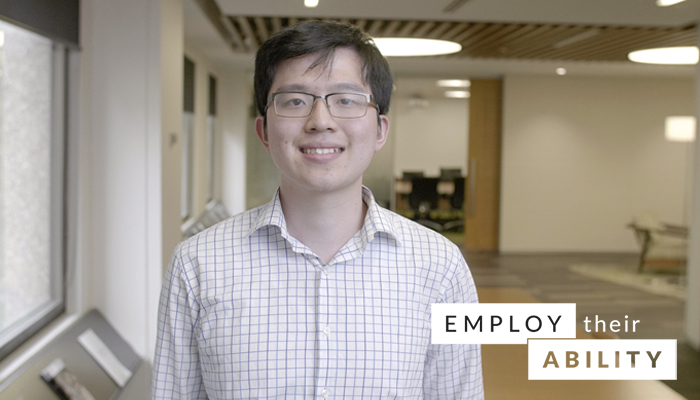Workplace confidence with disability employment drives success

For SMEC, an engineering company with long-standing history dating back to the Snowy Mountains Hydroelectric Scheme in 1949, disability employment isn’t just about the individual – the organisation benefits too.
“It helps our people appreciate all kinds of diverse perspectives,” says SMEC ANZ CEO James Phillis.
“Some of what we do is stakeholder and community engagement, so anything that helps our staff understand a broad range of perspectives is a definite positive for us,” he says.
Over three years ago, SMEC employed Horace Wong as an Office Assistant through Jobsupport, a Disability Employment Services (DES) provider – a decision that James played a key part in.
“Hiring Horace was my EA’s idea, but as soon as the opportunity was raised I was a strong supporter,” he says.
“Both personally and organisationally we have a very egalitarian culture, so providing someone an opportunity they might not otherwise get was important to me.”
When Horace started at SMEC, Jobsupport helped by developing a Support Agreement outlining what his day to day tasks would be, and what help he would need.
“We didn’t need to make any physical adjustments for Horace – we just supplied the equipment he’d need as we would with any other employee,” says James.
“For the most part, we give him extra space when he needs it, we clearly explain tasks, that kind of thing. It’s about being flexible, and giving him every opportunity to succeed – which is again just what we do with any employee,” he says.
Like Horace, many people with disability won’t need physical adjustments in the workplace. But, knowing when adjustments need to be made is an important part of hiring people with disability. When you aren’t sure what might be needed, the Disability and Adjustment page on the JobAccess website has information that can help.
For SMEC, hiring people with disability is not only good for people, it makes good business sense too.
“Our reason for employing people with disability is two-fold. For one, organisations need to respect and reflect the communities in which they work. And, people with disability have the right to work just like anyone else, which means giving them a fair and reasonable chance to do so,” says James.
For organisations looking to hire people with disability, there are plenty of resources to help source talent. The National Disability Recruitment Coordinator (NDRC) can work with larger organisations to help them access the skills and talents of people with disability, while DES providers can work with organisations of any size to do the same.
Last updated:
